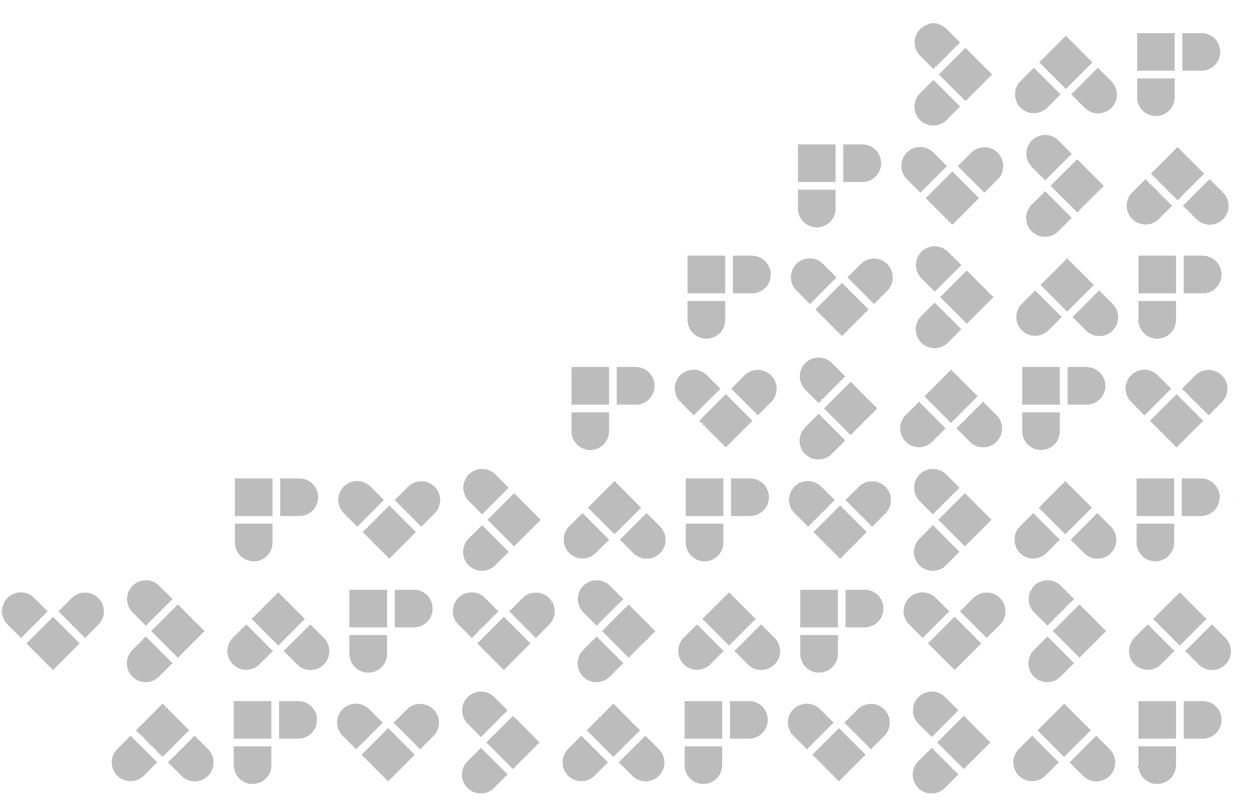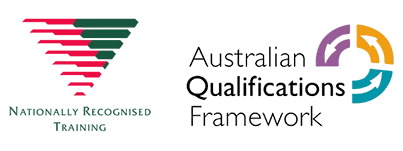Diploma of Counselling



Course Overview
The CHC51015 Diploma of Counselling provides a comprehensive introduction to counselling and therapy, focusing on skills such as empathy, building rapport, and mediation. This qualification is ideal for community services workers who want to help people with personal issues affecting their health and wellbeing. It equips you with practical and theoretical knowledge to foster therapeutic relationships, preparing you for roles in agencies or private practice within the Australian community services sector.
What you'll learn
This nationally recognised qualification provides comprehensive training in counselling theory, practice, and ethics. Designed for those ready to support individuals through personal challenges and change, you’ll gain practical, client-focused skills across a wide range of areas. In this course, you’ll learn to:
Build strong, therapeutic relationships – using advanced communication and interpersonal techniques to support diverse clients
Apply evidence-based counselling therapies and frameworks – including personality, development, and learning theories
Facilitate the counselling process – helping clients explore concerns, set goals, and navigate life transitions
Support clients in crisis and high-risk situations – including suicide prevention, trauma-informed care, and brief interventions
Work legally, ethically, and with cultural sensitivity – ensuring inclusive, respectful, and accountable practice
Develop and review case management plans – to support long-term wellbeing and coordinated care
Reflect on your own practice – continually improving your approach through professional insight and feedback
With 17 nationally recognised units, this diploma equips you with the skills and knowledge to work confidently in counselling and community support roles, or to begin building a pathway toward specialised therapeutic practice.
Enrol in this course and receive a Free ATMS Student Membership!
When you enrol in the CHC51015 Diploma of Counselling, you’ll not only gain the skills to advance your counselling career, but you’ll also receive a free membership with the Australian Traditional-Medicine Society (ATMS). This added benefit gives you access to valuable industry resources, networking opportunities, and a deeper connection to the natural medicine community.
Enrol today! Get in touch to know more.
Studying with Upskilled
What's Included?
By choosing Upskilled's CHC51015 Diploma of Counselling, you'll gain access to resources that enhance your online learning experience, making it interactive and engaging:
Benefit from expert career advice provided by our trainers as you study.
Connect directly with employers seeking your new skills
Access top vendor content like Microsoft and prepare for certifications.
Access course materials through our customised learning platform.
Get help from our dedicated Australian-based support team.
Learn from experts with decades of industry experience.
Modules
To satisfy the requirements of this qualification, you'll need to complete the following units of competency.
This unit describes the skills and knowledge required to work respectfully with people from diverse social and cultural groups and situations, including Aboriginal and/or Torres Strait Islander people. This unit applies to all workers. The skills in this unit must be applied in accordance with Commonwealth and State/Territory legislation, Australian/New Zealand standards and industry codes of practice.
The unit describes the skills and knowledge required to identify Aboriginal and/or Torres Strait Islander cultural safety issues in the workplace, model cultural safety in own work practice, and develop strategies to enhance cultural safety. This unit applies to people working in a broad range of roles including those involved in direct client service, program planning, development and evaluation contexts. The skills in this unit must be applied in accordance with Commonwealth and State/Territory legislation, Australian/New Zealand standards and industry codes of practice.
This unit describes the skills and knowledge required to identify and work within the legal and ethical frameworks that apply to an individual job role. This unit applies to community services and health workers who play a proactive role in identifying and meeting their legal and ethical responsibilities. The skills in this unit must be applied in accordance with Commonwealth and State/Territory legislation, Australian/New Zealand standards and industry codes of practice.
This unit describes the skills and knowledge required to use a structured approach to counselling to determine, establish and confirm the nature of the counsellor client relationship according to the agency’s counselling model. This unit applies to individuals whose job role involves working with clients on personal and psychological issues within established policies, procedures and guidelines. The skills in this unit must be applied in accordance with Commonwealth and State/Territory legislation, Australian/New Zealand Standards and industry codes of practice.
This unit describes the skills and knowledge required to use advanced and specialised communication skills in the client-counsellor relationship. This unit applies to individuals whose job role involves working with clients on personal and psychological issues within established policies, procedures and guidelines. The skills in this unit must be applied in accordance with Commonwealth and State/Territory legislation, Australian/New Zealand Standards and industry codes of practice.
This unit describes the skills and knowledge to support clients to identify and work though concerns, and to manage the overall counselling process to its conclusion. This unit applies to individuals whose job role involves working with clients on personal and psychological issues within established policies, procedures and guidelines. The skills in this unit must be applied in accordance with Commonwealth and State/Territory legislation, Australian/New Zealand Standards and industry codes of practice.
This unit describes the skills and knowledge required to practice and contribute to the continuous improvement of trauma informed care within a service. This unit applies to individuals working in the community services and health sectors where services are informed by the knowledge and understanding of central trauma, particularly the impact of interpersonal violence.
This unit describes the skills and knowledge required to evaluate and enhance own practice through a process of reflection and ongoing professional development. This unit applies to workers in all industry sectors who take pro-active responsibility for their own professional development. The skills in this unit must be applied in accordance with Commonwealth and State/Territory legislation, Australian/New Zealand standards and industry codes of practice.
This unit describes the skills and knowledge required to research key concepts and constructs of theories of personality and human development, and link those to counselling practice. This unit applies to individuals whose job role involves working with clients on personal and psychological issues within established policies, procedures and guidelines. The skills in this unit must be applied in accordance with Commonwealth and State/Territory legislation, Australian/New Zealand Standards and industry codes of practice.
This unit describes the skills and knowledge required to apply theory underpinning behaviourism and social learning to formulate and monitor a program for behaviour change in a counselling context. This unit applies to individuals whose job role involves working with clients on personal and psychological issues within established policies, procedures and guidelines. The skills in this unit must be applied in accordance with Commonwealth and State/Territory legislation, Australian/New Zealand Standards and industry codes of practice.
This unit describes the skills and knowledge required to select and use different counselling therapies to meet client needs. This unit applies to individuals whose job role involves working with clients on personal and psychological issues, within established policies, procedures and guidelines. The skills in this unit must be applied in accordance with Commonwealth and State/Territory legislation, Australian/New Zealand Standards and industry codes of practice.
This unit describes the skills and knowledge required to assist clients to clarify their goals, explore options and develop a course of action. This unit applies to individuals whose job role involves working with clients on personal and psychological issues, within established policies, procedures and guidelines. The skills in this unit must be applied in accordance with Commonwealth and State/Territory legislation, Australian/New Zealand Standards and industry codes of practice.
This unit describes the skills and knowledge required to undertake case management meetings to plan, monitor and review service provision.
This unit describes the skills and knowledge required to assess intervention needs, and then to implement and monitor brief intervention strategies for people at various stages of the change process. This unit applies to workers in a range of community services contexts.
This unit describes the skills and knowledge required to engage with diverse people to determine relationship issues and support relationship building using a strengths-based approach. This unit applies to individuals working with individuals and families in community services work. It does not include formal relationship counselling. When combined with other units it may apply to group work. The skills in this unit must be applied in accordance with Commonwealth and State/Territory legislation, Australian/New Zealand Standards and industry codes of practice.
This unit describes the skills and knowledge required to recognise situations where people may be in imminent crisis, and then to work collaboratively to minimise any safety concerns and make plans to access required support services. This unit applies to any community services worker involved in crisis intervention. Management of the crisis may involve face-to-face, telephone or remote contact with persons involved. The skills in this unit must be applied in accordance with Commonwealth and State/Territory legislation, Australian/New Zealand standards and industry codes of practice.
This unit describes the skills and knowledge to identify and manage immediate suicide risk and work with the individual to achieve safe outcomes. It includes the requirements for developing a clear safety plan for addressing any immediate danger to the person at risk or others, mobilising access to emergency medical help when needed and facilitating links with further support. This unit applies to people in formal helping roles in any community service context. Suicide safety may involve face-to-face, telephone or remote contact with the person involved. The skills in this unit must be applied in accordance with Commonwealth and State/Territory legislation, Australian/New Zealand standards and industry codes of practice.
Career Outcomes
Possible Careers
Students who successfully complete this qualification may be able to pursue the following career outcomes.
Industry Outlook
Discover why Community Services is a vital and rewarding field, making a meaningful difference in people's lives.
Salary
$60k - $82K Annual Salary
Jobs
88,500
Education pathways
This course might include a pathway to university, which are subject to change. Please speak to one of our Education Consultants for more information.
Payment Options
All amounts are in AUD (RRP includes surcharge fees). Speak to our friendly Education Consultants at 1300 009 024 to learn about flexible payment plans.
*Terms & Conditions Apply. Government Funding may be available in some states. Please contact our education consultants to learn more. You can also check the Government Funding Section in FAQs.
Government funding
At both a state and federal level, government commitment to upskilling the Australian workforce has resulted in a comprehensive framework of funding schemes and incentive opportunities. As a result, many Upskilled participants are provided incentives by the Government to undertake training and/or find that their courses are heavily subsidised.
Government funding options for:
Diploma of Counselling
Major schemes include:
An Upskilled education consultant will contact you within 48 hours
Our Trainers
Upskilled Community Service trainers are industry professionals with extensive experience and expertise, dedicated to providing practical, hands-on learning. They are committed to helping students develop the skills to succeed in the impactful and evolving community services industry.
Hear from our past students

Recently started the Diploma of Counselling. Can't thank Upskilled and all staff enough. I was hesitant.at first but it was always something i have wanted to do. Have been involved in education and it has been a part of the job but have always wanted to do it as a profession. The education staff have been so supportive and instructional creating a great learning and interactive environment. Looking forward to studying more and making mistakes as thats how I learn and progress.
Special thank you to Jo one of the Education Consultants. He was informative. friendly, knowledgeable about the course and study. Didn't feel pressured just helped me navigate options and left it up to me to decide. So glad he rang after I expressed interest in commencing studies again after a long time.

My Experience with upskilled's coordinator Mr Ronnie, is absolutely amazing, his such a great teacher and his explanation in regarding the course are very clear and very helpful. Since I started he was always there when needed help with the course. Mr Ronnie makes you understand how to reach your goal of understanding of each session and the progress is very successful. Keep up with the good work Ronnie, and i recommend Upskilled's and Ronnie to every student and do not hesitate to contact all staff there as there a very grateful and will attend helping you straight away. One more think, I wouldn't be able to do this with out you (Ronnie) helping and supporting me, overall his fantastic. I look forward to the next meeting.

I really enjoyed studying the Diploma in Counselling this was such a great course. I loved the interaction with people and learning new aspects of counselling. I have learnt so much that going onto the next faze of my studying will help me tremendously after doing this course.
My trainer Ronnie was very supportive and helpful and was always available when needed, he offered great feedback and encouraged role playing as much as possible.
How to enrol
We will invite you to an online orientation session and you can get started on your course.
Include your details, proof of previous learning, address verification, and preferred payment option to finalise your enrolment.
A friendly Education Consultant will be in touch to answer all your questions.
What you need to know
Entry Requirements
There are no formal entry requirements for this course. To make sure you get the most out of training with us, the following enrolment process applies:
- Once you have inquired, one of our friendly Education Consultants will contact you to ensure you have the right pre-existing knowledge and skills to achieve your chosen qualification.
- A short language, literacy and numeracy assessment will need to be completed upon enrolment.
Recommended Skills and Resources:
- Have the ability to read and write in English and display numeracy skills up to a minimum level of Year 12.
- Have access to a modern computer with high-speed internet.
- Have access to a device with audio/video recording and playback capabilities.
- Have basic computing skills, including the ability to make and upload short videos.
Self-Paced Learning and Course Duration
Upskilled's flexible, self-paced courses let you balance personal and work schedules. With a training plan to keep you on track, most students complete the course in 12-18 months, but motivated learners can finish faster. Speak with an Education Consultant to discuss your study and completion goals.
Assessment
Upskilled provides a very practical approach to this qualification. As part of your assessment, you will be a trainee counsellor within a simulated workplace and required to complete supervised counselling sessions simulating a variety of different counselling scenarios.
This approach will provide much-needed hands-on practice in counselling clients and will allow you to apply learning and counselling theories in practice. More info here.
Recognition of Prior Learning / Credit Transfer
You may be eligible for Recognition of Prior Learning (RPL) or Credit Transfer (CT) with supporting evidence of prior education or work experience. This can reduce your study load or course duration. Speak with your Education Consultant before enrolment for details, or download the application from MyUpskilled after enrolment. A trainer will assess your eligibility.
Role-Playing and Interactive Learning Activities
This course includes optional Interactive Learning Activities to enhance practical experience, led by specialist trainers. These activities allow you to collaborate with other students, share ideas, and engage in group exercises. Benefits include finding study buddies, participating in online classrooms, and engaging in assessment-related activities to improve your knowledge and skills.
Role-playing is a key component, helping you:
- Improve decision-making and communication skills, essential in health and community services.
- Prepare for work placement by simulating real-world scenarios.
- Become "work-ready" by practising hands-on roles, particularly in disability and aged care sectors. This interactive approach offers practical experience and helps build the skills needed for the industry.
Dedicated Community Service Trainers
Upskilled's community services trainers bring comprehensive skills and industry experience to prepare you for a rewarding career. They approach training with empathy, compassion, and openness, helping you develop job-ready skills. Support includes recorded assessment walkthroughs, academic support sessions, additional resources, professional development opportunities, peer support, practical practice sessions via Zoom, and online recorded training.
FAQs
Counselling is a respectable profession in the community services industry that requires a well-developed skill set to help clients work through their issues - either associated with their mental health or difficulties experienced in their livelihoods.
There are plenty of valuable skills you can learn from the CHC51015 - Diploma of Counselling that can prepare you for a career as a practising counsellor. These include:
- Being able to recognise and manage crisis situations
- Working with different people across all backgrounds
- Approaching each situation with empathy and integrity
- Interpersonal skills that can help you approach each client's situation with great sensitivity
If you're looking to change careers or gain basic counselling skills that can prepare you to enter the workforce, we also have a Short Course in Counselling that can provide you with the training needed to understand the framework of counselling.
This can be beneficial if you're in a career where you regularly interact with people where managing crisis situations may be required. It may be suitable if you work as a teacher or HR professional looking for skills that can improve your approach when managing conflict between people.
Our short online courses are great for those wanting to dabble in an area they're thinking of exploring so if you're considering counselling as a career option, the Short Course in Counselling is an excellent learning opportunity.
Becoming a counsellor is one of the most rewarding careers you can ever pursue. It's an impactful role where you can help those who are struggling with their mental health and need the guidance and support to get back on their feet.
This is also a great career option if you have a strong interest in psychology but want to pursue a career in counselling as a stepping stone to enter the mental health field.
There are many benefits that come with being a counsellor. These include:
- Being a meaningful career.
- There is flexibility where counselling can be done over the phone or through video conferencing; which provides options to work remotely or on a hybrid schedule.
- There are strong employment prospects as a counsellor since you'll have the opportunity to work with a variety of clients - whether that be with couples or youth.
To enrol in a counselling course, you'll need to first fill out an enquiry form for the CHC51015 - Diploma of Counselling. You'll need to supply some of your personal details, including your name, best contact number and email address.
You'll also be required to answer the question, 'What best describes you?', which can help us find out your intentions of studying a course with Upskilled.
By knowing which description fits you best, it allows our education consultants to ensure that they are ready to ask you the relevant questions during your consultation.
You may be someone looking to:
- Change careers
- Pursue a promotion
- Return to work
- Start a career
- Expand your skill set
Once you submit your enquiry form, one of our education consultants will be in contact with you within 48 hours to discuss more about the online counselling course.
From here, you'll have the opportunity to ask questions about payment options, course eligibility and the possible career outcomes you can achieve from the CHC51015 - Diploma of Counselling.
If you're happy with the course, your education consultant will send you through an enrolment form via email to get you started on your student journey.
There are no formal entry requirements for this course. To make sure you get the most out of training with us, the following enrolment process applies:
-Once you have inquired, one of our friendly Education Consultants will contact you to ensure you have the right pre-existing knowledge and skills to achieve your chosen qualification.
-A short language, literacy and numeracy assessment will need to be completed upon enrolment.
To successfully complete this course, we recommend the following: -Have the ability to read and write in English and display numeracy skills up to a minimum level of Year 12.
- Have access to a modern computer with high-speed internet.
- Have access to a device with audio/video recording and playback capabilities.
- Have basic computing skills, including the ability to make and upload short videos.
Individuals who undertake this qualification will learn how to:
- Provide support regarding the mental, emotional, and lifestyle problems of a diverse range of clients
- Recognise and respond to crisis situations
- Experience working with other medical practitioners – all within an ethical and legal framework.
This qualification could give you several career and/or further study outcomes. After completing this course, you could explore some of the following outcomes:
- Family Support Worker
- Counsellor
- Make a real difference in people's lives: No matter what role you choose to pursue in the community services industry, the support and care you'll give to other people can create a positive impact.
- A variety of work available: You have room to move in the community services industry, so if you want to be in a different role, it's possible to do this as there are plenty of other sectors you can explore.
- The industry is booming: It's projected that by 2023, the industry will have over 1.9 million employees. With Australia's ageing population, there is a high demand for skilled workers in community services - particularly in aged care.
- Develop useful transferable skills: Being a team player, having the ability to solve problems and critical thinking are transferable skills you can gain from working in community services, which can help you interact with people on a daily basis.
Upskill to stay ahead of the curve.
Speak with an Upskilled Education Consultant to gain insightful guidance on identifying the ideal course for your career path and future aspirations.




